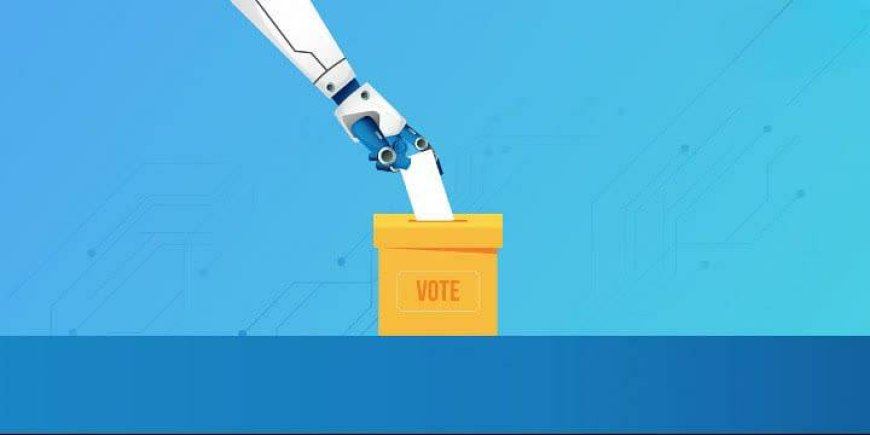Artificial Intelligence: A Double-Edged Sword for Democracy?
Artificial Intelligence: A Double-Edged Sword for Democracy?

By: A. Mahdavi
Artificial intelligence (AI) is rapidly emerging as a powerful and sophisticated tool across various industries worldwide. Its application in political decision-making is becoming increasingly significant. However, it is crucial to comprehensively examine the advantages and disadvantages associated with AI, as they have profound implications for the realm of politics and democracy.
One of the key concerns regarding AI is its capacity to shape narratives. AI has the potential to independently create events and present them as factual, making it challenging for humans to discern their authenticity. This has far-reaching consequences for society, given AI's extensive knowledge and analysis of human behavior and functions. Consequently, false information generated by AI may appear more credible than misinformation propagated by humans.
Furthermore, the foundation of democracy rests upon dialogue and interaction. If AI supplants human discourse, the very essence of democracy is undermined. Dialogue and the clash of differing opinions are fundamental to democratic societies. Therefore, the absence of these elements, facilitated by AI's dominance, could lead to the erosion of democracy.
AI also possesses the ability to propose ideas and issues that align with economic interests, potentially favoring its designers. Additionally, if AI can eliminate competition from traditional media outlets, it can shape public opinion according to its own desires or those of its creators. Given that this technology currently lies outside the control of governments and technology giants, it is imperative for governments to recognize this threat, develop effective solutions, and establish appropriate laws to govern its use.
On the other hand, AI's ability to analyze and review vast amounts of information can be advantageous. By comprehending diverse online viewpoints, AI can bridge ideological divides and foster empathy and diversity of opinion. These factors are crucial for a healthy democracy. Unlike authoritarian regimes that impose a singular worldview and narrative, democracies thrive on robust discourse supported by a multitude of perspectives that acknowledge human fallibility. Engaging with diverse viewpoints allows for a comprehensive understanding, which philosopher Karl Popper deems essential for democracy.
AI can also contribute to a shared understanding of various issues, thereby strengthening democracy. With AI's assistance, we can gain deeper insights into critical topics such as climate change and present compelling arguments to opposition groups that align with government policies. By seeking logical and reasoned answers from AI, we can engage in productive conversations with opponents, as we are well-informed about their viewpoints. AI can also shed light on human rights issues and provide unique perspectives, emphasizing their significance.
However, it is crucial to recognize AI as a double-edged sword, with its impact contingent upon governments' perspectives. Western countries, which have traditionally championed democracy, must pay adequate attention to this issue. Neglecting the influence of AI could result in widespread political crises and chaos, with the potential to affect nations worldwide. Countries with weaker institutional and bureaucratic structures are particularly vulnerable to the disadvantages posed by AI.
In conclusion, the role of AI in political decision-making is rapidly expanding. While it presents both advantages and disadvantages, governments must proactively understand and manage the impact of AI. By doing so, they can harness its potential to strengthen democracies and effectively address global challenges, while simultaneously mitigating any adverse consequences.













































